Center for Health Equity Newsletter
August 2021

In this newsletter:
Greetings from the Center for Health Equity
Message from the Interim Director
CONNECT: Letting Community Lead the Way: Nobles County Research Study
STRENGTHEN: A Year of COVID-19 with the Latinx Community Liaison Team
AMPLIFY: Nenookaasikwe’s Dibaajimowin: Hummingbird Woman’s Story
Greetings from the Center for Health Equity
It is hard to believe that we have been living through a pandemic for the past year and a half. COVID-19 has taken a toll on all of us, and we’ve all experienced some level of loss and grief. Unfortunately, COVID-19 is not over. We hope that all of you are taking time to prioritize your mental health. Processing and healing are vital to our ability to do equity work, and we hope that you all can make space for that in your lives as well.
Since our last newsletter, our vaccine efforts through the Cultural, Faith and Disabilities Communities branch have ramped up significantly. Our community contractors have hosted dozens of vaccine clinics over the summer, and we are working closely with our community contractors and community partners to address vaccine hesitancy and ongoing barriers to vaccination. Case numbers continue to increase as we see a rise in the highly contagious Delta variant. A majority of these cases are among unvaccinated Minnesotans. We encourage folks to get vaccinated if you haven’t already and to continue to take precautions such as a masking and getting tested as recommended by CDC guidelines.
 At the Center for Health Equity, we’ve said farewell to two of our beloved co-workers in the past month: Madison Olmsted and Genelle Monger. Madison started her work at the Center for Health Equity in the fall of 2018 as a CDC fellow. She has been an incredible champion for equity and has pushed our team to be more intersectional in our equity work. Within CHE, Madison was integral in supporting our Internal Health Equity Advisory & Leadership Team Hub (I-HEALTH) and planning two Health Equity Showcases (February 2019 Health Equity Showcase and August 2019 Health Equity Showcase). She also made lasting contributions to our COVID-19 response work, especially related to communications with diverse communities and translations. She will be greatly missed, but we are so excited for the next step in her journey as she pursues a Master’s in Public Policy at the University of California, Berkeley!
At the Center for Health Equity, we’ve said farewell to two of our beloved co-workers in the past month: Madison Olmsted and Genelle Monger. Madison started her work at the Center for Health Equity in the fall of 2018 as a CDC fellow. She has been an incredible champion for equity and has pushed our team to be more intersectional in our equity work. Within CHE, Madison was integral in supporting our Internal Health Equity Advisory & Leadership Team Hub (I-HEALTH) and planning two Health Equity Showcases (February 2019 Health Equity Showcase and August 2019 Health Equity Showcase). She also made lasting contributions to our COVID-19 response work, especially related to communications with diverse communities and translations. She will be greatly missed, but we are so excited for the next step in her journey as she pursues a Master’s in Public Policy at the University of California, Berkeley!
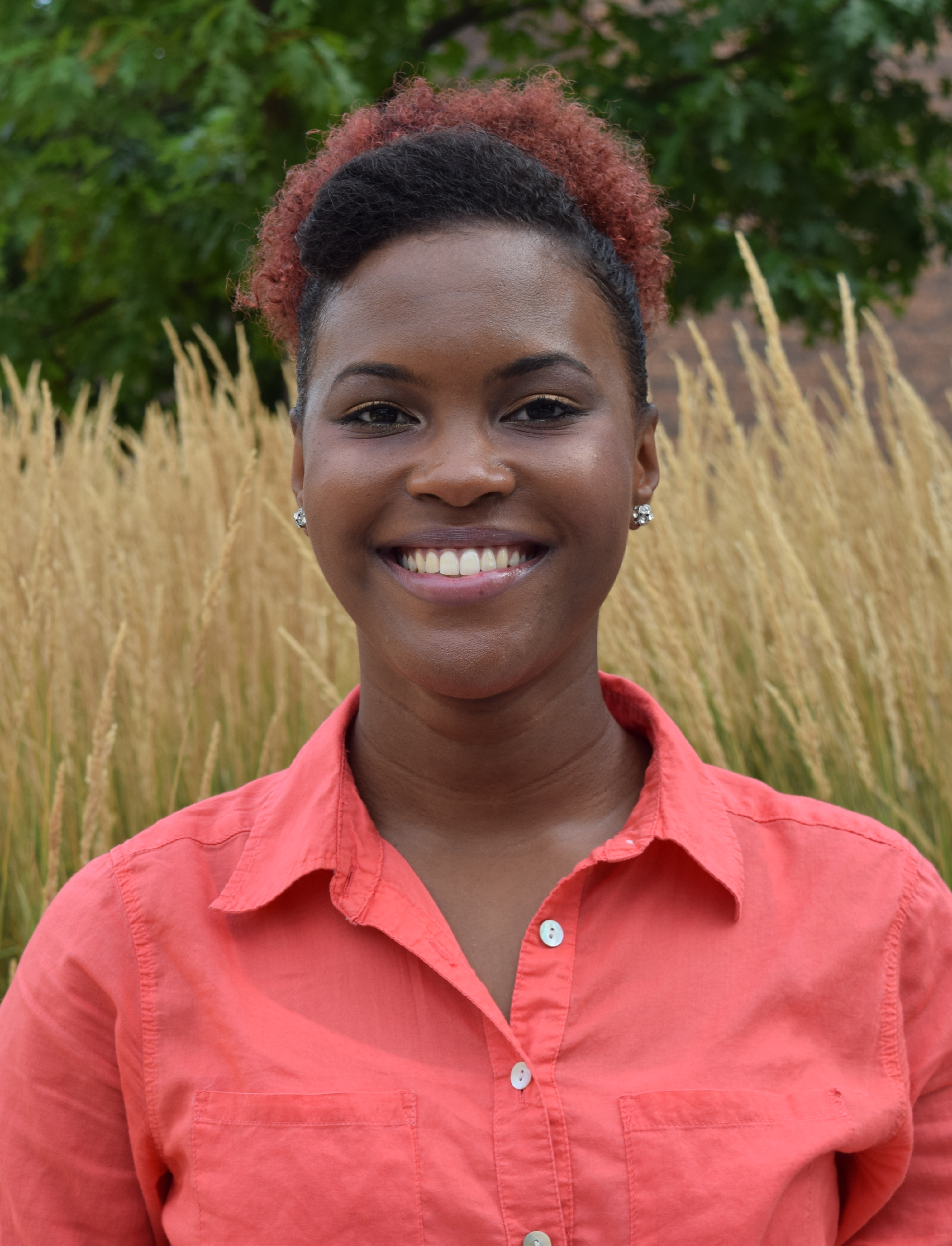 Genelle started her work at the Center for Health Equity in fall of 2019 as a graduate fellow. She worked primarily on our Community Solutions for Healthy Child Development Grant and was central in creating our Community Solutions Advisory Council. Genelle will also be greatly missed, but once again we are thrilled for the next step in her journey as a health and nutrition contractor with Feeding America!
Genelle started her work at the Center for Health Equity in fall of 2019 as a graduate fellow. She worked primarily on our Community Solutions for Healthy Child Development Grant and was central in creating our Community Solutions Advisory Council. Genelle will also be greatly missed, but once again we are thrilled for the next step in her journey as a health and nutrition contractor with Feeding America!
Interested in being a guest writer for a future newsletter?
Email your idea to health.equity@state.mn.us and we will be in touch!
Message from the Interim Director
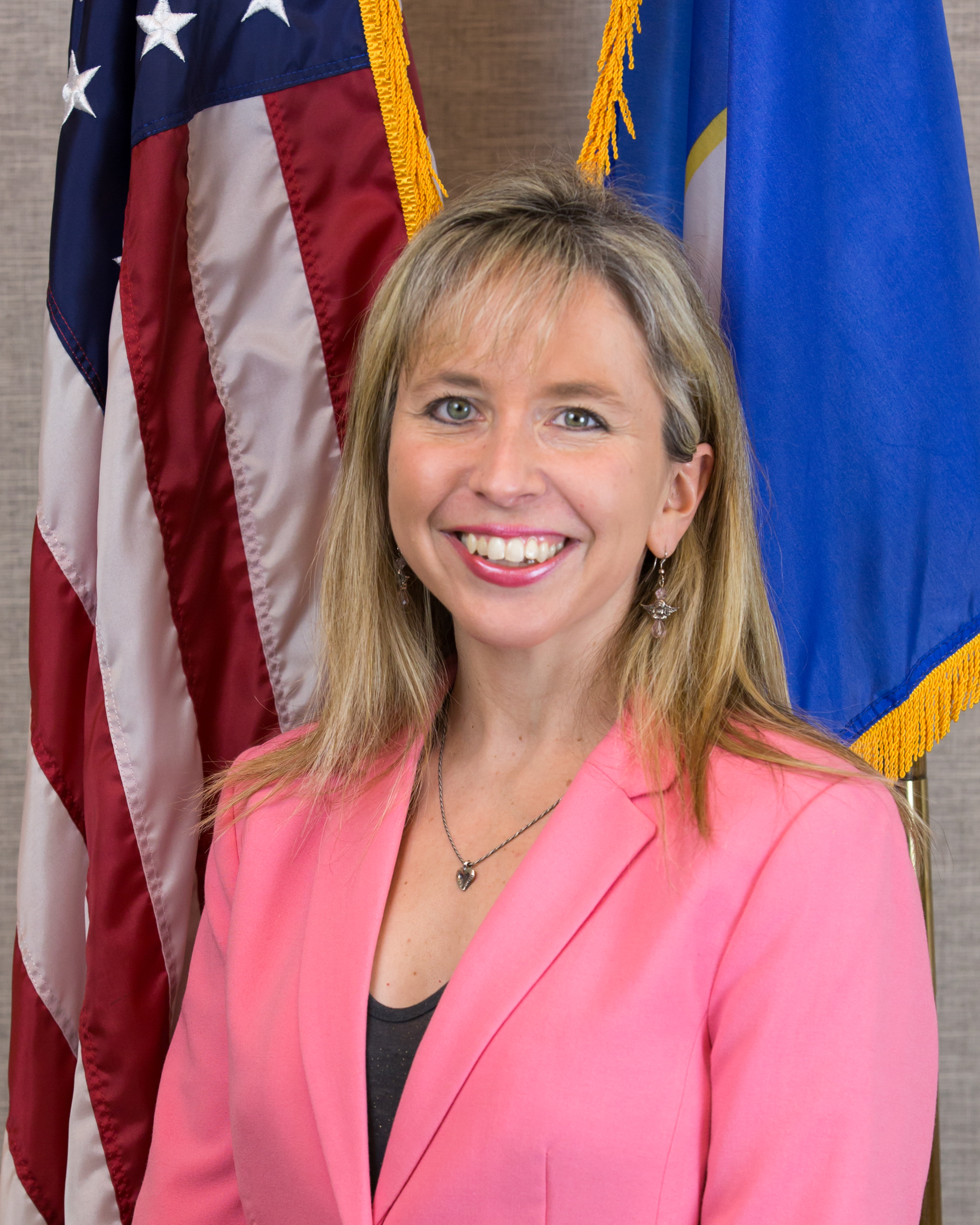 Five years ago, during my first term as interim director for the Center for Health Equity (CHE), our equity family was a bit smaller in size and little could we imagine the world and pandemic that was to come. One thing has not wavered: the commitment of our team and partners on the ground to co-creating more equitable systems for those most impacted by inequities in Minnesota.
Five years ago, during my first term as interim director for the Center for Health Equity (CHE), our equity family was a bit smaller in size and little could we imagine the world and pandemic that was to come. One thing has not wavered: the commitment of our team and partners on the ground to co-creating more equitable systems for those most impacted by inequities in Minnesota.
There are so many people to thank for their leadership. First, my heartfelt gratitude to Kou Thao, who left MDH in May, for leading CHE with innovation, tenacity, and grace. We would not be where we are without the incredible foundation he laid and left for us to carry on.
Second, to those MDH and redeployed staff who have risen to fight for justice for our communities most impacted by inequities during the pandemic, which continues to rage on. Special thanks to our community liaisons, contract/grant managers, evaluators, data stewards, health educators, and countless others who lead with compassion and dignity every day, lifting up the voices and concerns of those devastated by the impacts of COVID.
Third, to our community partners, local public health, and tribal partners who are on the front lines ensuring that people of color, American Indians, LGBTQ communities, disability communities, and all of the many intersections of our communities most impacted by COVID and health and racial inequities are prioritized in our collective efforts. We are so grateful for your tireless dedication and partnership.
Thank you all for being part of our equity family. Despite progress over time, there is much work to do. Together we can effect profound change, so long as we continue to center and elevate the voices of those with lived experience, who know best what is most needed for their communities.
Sara Chute
Interim Director, Center for Health Equity
CONNECT
We are a network hub – leading, connecting and strengthening networks of health equity leaders and partners across MDH and Minnesota communities.
This article is part of a series of stories about community outreach and partnership in response to the COVID-19 pandemic. Learn more and find more stories on the COVID-19 Stories of Community Outreach and Partnership page.
Letting the Community Lead the Way: Nobles County Research Study Sheds Light on COVID-19 Spread
In April 2020, early on in the COVID-19 pandemic, a COVID-19 outbreak temporarily shut down the JBS pork plant in Worthington, Minnesota. Employees at this pork plant identify as Hispanic or Latinx, African, or Asian immigrants, communities that have been hardest hit by COVID-19 due to many systemic barriers and challenges. Over 600 employees tested positive, leaving the small community in Nobles County with a ripple effect that was incalculable at the time.
That summer, the city of Worthington reached out to the Minnesota Department of Health (MDH) to request that they partner to conduct a research study to better understand the impact and extent of the outbreak in Nobles County. The study, known as a serology study, would involve collecting dried blood spot samples from Nobles County residents and testing them for SARS-CoV-2 antibodies, an indicator of past COVID-19 infection.
To plan the study, MDH formed a team of staff from across the agency. They immediately brought together a group of community partners, including Voices for Racial Justice, an organization committed to building power through collective cultural and healing strategies for racial justice across Minnesota and Seeds of Justice, the Worthington chapter of Voices for Racial Justice. Community organizers from these groups were instrumental in designing the study and working directly with community members to ensure participation in the study. A key element of the process was relationship building. At each meeting the MDH team and the community partners prioritized getting to know each other. This proved to be critical because much of the work took interpersonal trust to be successful.
For this study, the MDH team did not just want to understand the spread of COVID-19 in Nobles County, but also the impact on the community and potential solutions to prevent future outbreaks. The blood test was paired with a written survey available in Spanish, Karen, Amharic, Oromo, and English. The survey included questions about food security, housing, and community resources. When developing the survey, Stephanie Yendell, an MDH team member, said, "MDH and community leaders got an equal vote on which questions we would include. Everyone left empowered."
Breaking tradition in favor of trust
The success of the study depended on community members showing up to participate. In order for the results to be useful, the demographics of the participants had to be representative of the community overall. For MDH staff, this meant trusting community partners and organizers to reach the community and bring them in. Traditionally, serology studies rely on preregistration of participants in order to estimate participants and their demographics; however, the community organizers insisted that this would not work well amongst the community. Sara Vetter from MDH explained, "We had to trust the community. They are community organizers, this is the culture, we have to understand the community and the people. We worked with the community and let them do what they need to do." They broke the mold of other community testing events by designing an onsite registration system that could handle more people and brought in additional volunteers to assist participants with day-of registration.
Additionally, community organizers took the lead in planning some of the other critical elements of the study. Yendell said, "They had input into what time and days the events would be, thinking about what time people’s shifts are and what time people finish church. [They advocated for] choosing places that were familiar to the community." All these thoughtful details ensured that there would be good "turnout of participants from different ethnic communities," Leticia Rodriguez, a member of Seeds of Justice, explained. And, when it came time for the study, there was.
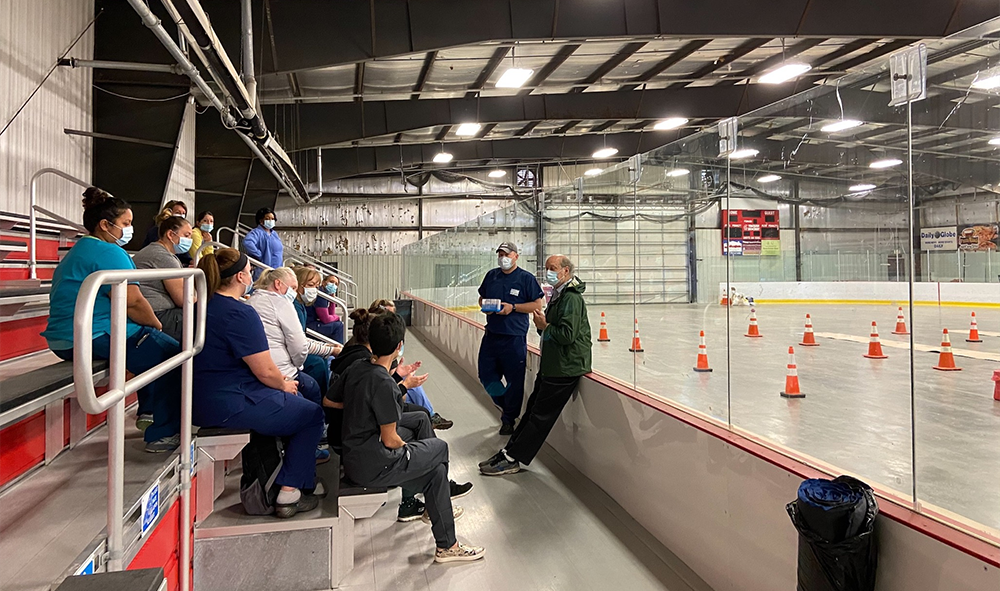
The data
The study ultimately had 1,691 participants that represented an accurate slice of the Nobles County population by race and ethnicity. In total, 266 participants tested positive for SARS-CoV-2 IgG antibodies, meaning they previously had COVID-19. The positivity rates showed a racial and ethnic disparity; the percent positivity for participants who identified as Asian (36%), Hispanic (28%), and Black or African American (26%) was higher than that of non-Hispanic Whites (9%). Furthermore, participants who worked at the local meat processing plant or lived with someone who worked at the meat processing plant had much greater odds of testing positive than households without meat processing plant workers.
The survey also proved to be a useful tool in understanding community needs. Results pointed to food insecurity for a quarter of Nobles County's residents, and also the need for a community center with culturally appropriate resources in various languages. Some of the resources that were mentioned included assistance with health insurance, legal help, employment and tenant rights, transportation, emotional support, housing and jobs, and navigating symptoms.
Making meaning for the results
The data tells a vivid story of the impact of the outbreak in Worthington. While the outbreak was identified at the meat packing plant, COVID-19 reached the entire community. Mateo Frumholtz, an MDH epidemiologist, shared, "The estimated prevalence of infection is much higher than what we thought it was. There is a community ripple effect of having an outbreak in one setting." Furthermore, the survey revealed more factors associated with testing positive. "Socioeconomic factors led to significantly higher risks of having been exposed and infected with COVID-19. For example, food insecurity was associated with higher odds of being exposed," said Frumholtz.
The racial disparities provided data to prove that communities of color were harder hit by the outbreak. Vetter explained, "[COVID-19] really is impacting people of color more. Our study can demonstrate that mechanically and scientifically, not just anecdotally."
Lessons learned
The MDH staff and community organizers involved in the study attribute its success to their strong partnership and trust in community wisdom. Marisol Chiclana-Ayala, co-director of the Cultural, Faith, and Disabilities branch at MDH, noted, "Local leaders were part of everything: development of the budget, design of survey, engagement strategies development...everything, and we followed their lead." Frumholtz agreed, saying, "There is something very different between engaging your partners and sharing power with your partners. We brought them in on day one, saying you tell us what to do and we'll bring the technical expertise and the resources." For, Rodriguez, this project "really showed that working as a team with different partners, you will achieve the greatest success."
As a result, MDH and the Nobles County community were able to collect data to both better understand the outbreak at JBS and the different factors that contributed to COVID-19 risk and overall health challenges in the area. Frumholtz explained, "All groups got something out of the project. Through this partnership, they were able to gain data they needed as well."
Now, over a year after the outbreak at JBS, all Minnesotans ages 12 and up have access to safe and effective vaccines to stop the spread of COVID-19. As community vaccination events have taken place across Minnesota, many of the same community engagement methods have continued to be effective in reaching people who are most impacted by health inequities. These have included same-day registration, community organizer involvement, and hosting events at a variety of times. MDH staff hope that these principles will continue to guide our work with the community going forward.
STRENGTHEN
We provide leadership in advancing health equity and cultivate health equity leaders within MDH and across Minnesota communities.
This article is part of a series of stories about community outreach and partnership in response to the COVID-19 pandemic. Learn more and find more stories on the COVID-19 Stories of Community Outreach and Partnership page.
Reflecting on a Year of COVID-19 with the MDH Latinx Community Liaison Team
Since the beginning of the COVID-19 pandemic, the Minnesota Department of Health (MDH) has prioritized sharing accurate information with Minnesotans on how to keep themselves and their families safe. This messaging includes topics ranging from wearing masks, to getting tested for COVID-19, to where to find a COVID-19 vaccine. Because these messages can sometimes change quickly due to the rapidly evolving nature of the crisis, it has been vitally important to have adaptive and responsive communications systems in place that reach all Minnesotans in culturally and linguistically appropriate ways.
Successful public health partnerships
For the Latinx community, a significant part of MDH’s response has been orchestrated by its Latinx Community Liaison Team – Jeanett Garcia and Marcie Babcock, who co-lead the team, as well as Mateo Frumholtz, Margarita Ruiz, Marisol Chiclana-Ayala, and Sylvette Lopez-Ruth (pictured below). Throughout the last year, they have worked tirelessly to advocate for the Latinx community’s needs during the COVID-19 response – quickly adapting, pivoting, and being creative to respond to shifting priorities when needed. When COVID-19 case data began showing increasing cases in the Latinx community last summer, the team pushed for and worked with community organizations serving the Latinx community to hold multiple community testing events. For Jeanett, one of their biggest successes was collaborating with faith-based leaders in Minnesota and the City of Minneapolis to hold COVID-19 testing events for the community at Sagrado Corazon, which led to a huge turnout from the community.
The team’s top priority throughout the pandemic has been to engage their community and develop genuine and authentic relationships with partners and organizations serving the Latinx community. From the very beginning, the team, originally led by Marisol, conducted outreach to leaders across the state including government agencies, local public health, nonprofits, and other community-based organizations to share resources and discuss concerns in the Latinx community at biweekly meetings. These meetings let the team continually look for ways to let community members’ voices shine through MDH contracts and partnerships.
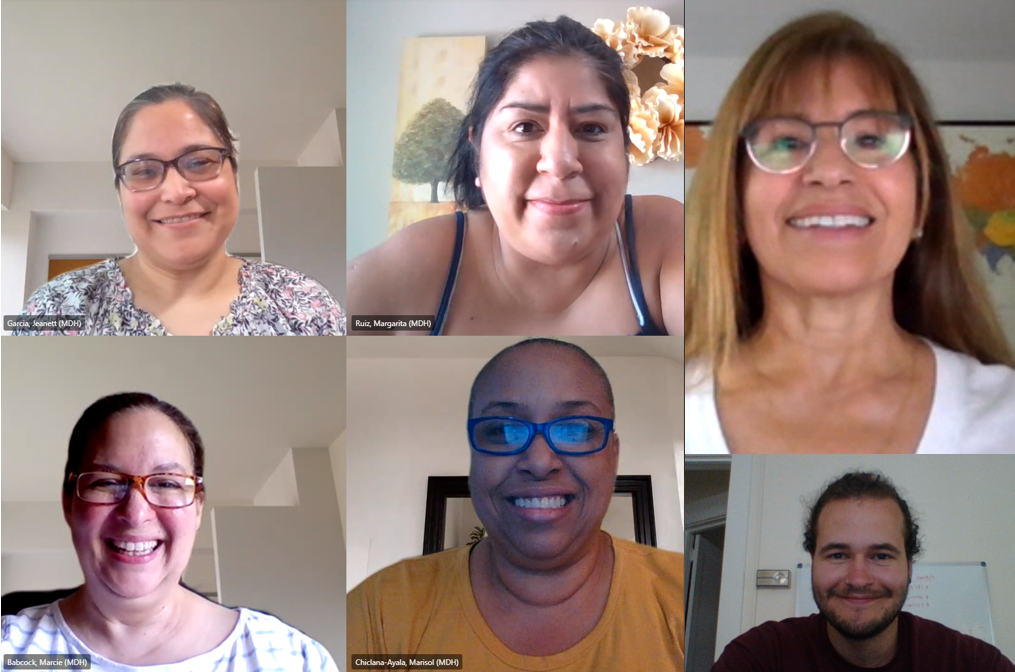
Team pictured above (from left to right, top to bottom): Jeanett Garcia, Margarita Ruiz, Sylvette Lopez-Ruth, Marcie Babcock, Marisol Chiclana-Ayala, and Mateo Frumholtz.
Continuing to connect the dots
Today, the team plays an important role in addressing vaccine concerns in the Latinx community. They provide a space to engage creatively and authentically with the community, especially those who do not have access to internet or social media. Of note, more than 82% of Latinx adults ages 45 to 64 have been vaccinated! However, there is still work left to do. Only 34% of Latinx community members between the ages of 15 and 44 are vaccinated.
The team and MDH’s partners continue to look for ways to create a safe and comfortable environment for members of the community to get vaccinated, such as successfully advocating that no government identification or documentation should be required for COVID-19 testing or vaccination, and ensuring vaccination events are flexible in timing to accommodate community member’s schedules. One sentiment repeatedly echoed by the team is “bringing vaccination sites to the community” and placing a large emphasis on creating a comfortable, safe, and trusted space for vaccination.
This last year has shown again and again the importance of authentically engaging with community partners and community members themselves. The team hopes that MDH will continue its commitment to authentic engagement and invest staff time to continue building and maintaining community relationships. While there is much to celebrate, the team also recognizes the work that can, and must, continue in order to protect the health of their community.
AMPLIFY
We amplify the work of communities most impacted by health inequities and support them to drive their own solutions.
Each year, the United States Breastfeeding Committee (USBC) offers a limited number of awards to recognize and promote the efforts of individuals who dedicate their service to communities with breastfeeding rates below the U.S. national average rates. One of these awards – the Tribal Trailblazer Award – recognizes individuals who are actively involved in collaborative efforts to protect, promote, and support breastfeeding in Native communities. This year, Shashana Craft of the White Earth Nation in Minnesota was recognized for her outstanding work promoting breastfeeding and supporting families throughout her career. Below is her story in her own words. Congratulations, Shashana!
Nenookaasikwe’s Dibaajimowin: Hummingbird Woman’s Story
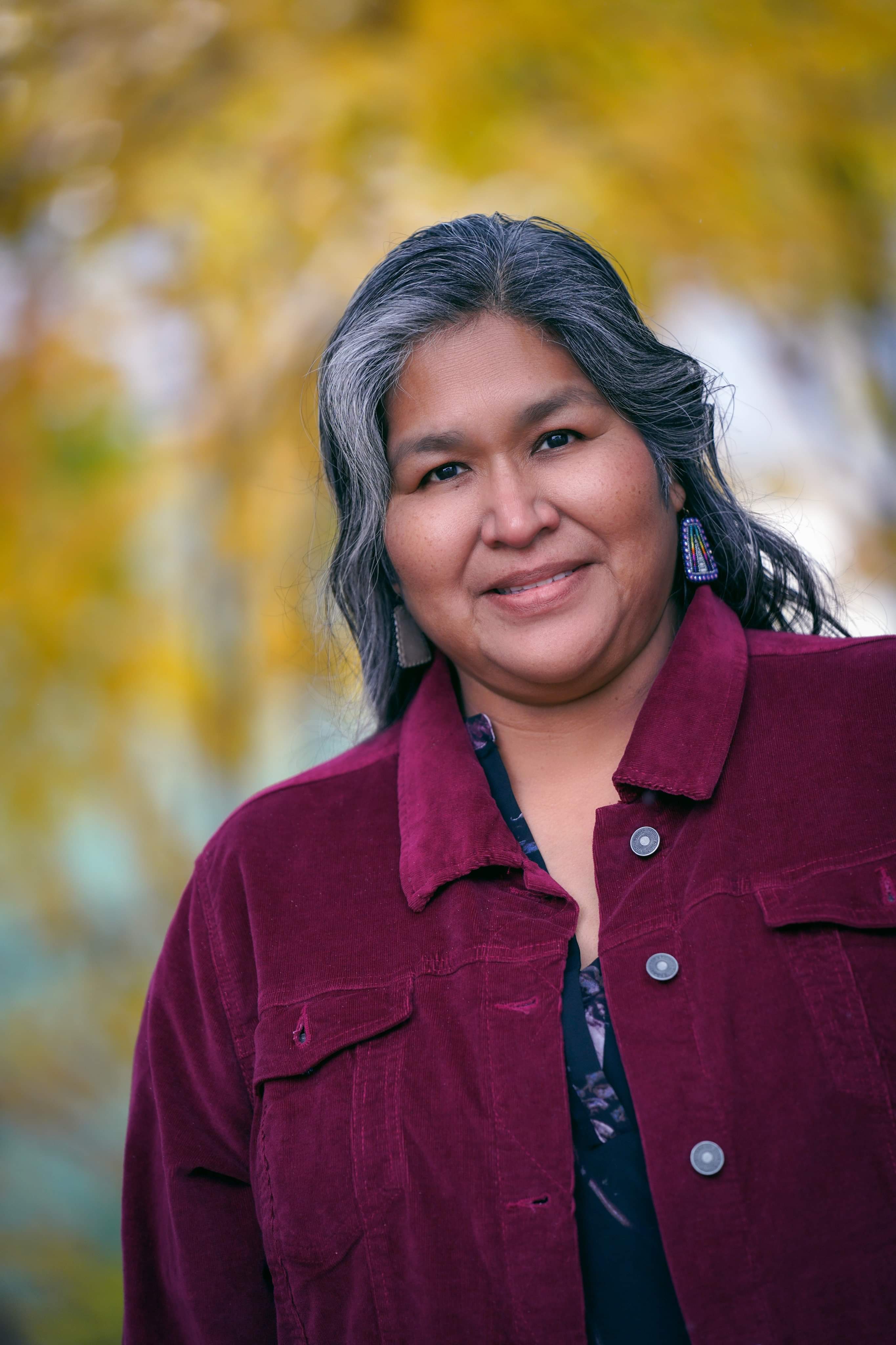 Boozhoo. Hello. I am known in the community as either Shashana or Nenookaasi. My spiritual name is Hummingbird Woman. I am from the Bear Clan. Originally, I am from the White Earth Reservation in Northern Minnesota. Today I live near Minneapolis. I have four adult children and two young relatives whom I call my own.
Boozhoo. Hello. I am known in the community as either Shashana or Nenookaasi. My spiritual name is Hummingbird Woman. I am from the Bear Clan. Originally, I am from the White Earth Reservation in Northern Minnesota. Today I live near Minneapolis. I have four adult children and two young relatives whom I call my own.
I knew I wanted to breastfeed as I saw my stepmother nurse my brothers when they were born. My oldest daughter was born via cesarean section. My milk was a bit delayed coming in because of that. I am so ever thankful for my best friend’s mother. She was an experienced mother and nursed all her children. In fact, she had a young infant a few months before my daughter was born. She didn’t live that far from me. She was always checking up on me or I would be at her house getting tips on how to get a better latch or parenting skills. I nursed all four of my children. My youngest son nursed the longest: a year and a half.
I have always worked in the medical field and eventually graduated from nursing school. I was known in the community where I lived in St. Louis, Mo., as the nurse. Many families came to me for advice on various things. Many women sought me for help during their pregnancy, labor, and delivery. I just loved being there for them and seeing our native babies being born. Many of these parents lived so far away from their family’s tribal communities. I advocated for new parents while at prenatal appointments or while they were in the hospital giving birth. But I never knew what a doula was until I moved to Minnesota.
When I moved to Minnesota, I was able to take an officially recognized doula training. I have taken many additional trainings since then, including an Indigenous Breastfeeding Counselor training. Less than two weeks after that, I founded what is now known as Nitamising Gimashkikinaan (“first medicine”). This Indigenous perinatal and lactation support circle was originally an idea when my Family Spirit Program (a home visiting program to promote health and wellbeing for Indigenous parents and their children) participated in MDH’s continuous quality improvement initiative focusing on promoting and assisting families with breastfeeding. Since its founding in August of 2019, the group meets twice a month and provides mothers confidential services ranging from pregnancy support and education to consultation on lactation issues that are grounded in Indigenous practices and history.
Since the coronavirus pandemic started, I needed help serving families virtually. I reached out and incorporated four more Indigenous Doulas/Indigenous Breastfeeding Counselors into our group. There is a definite need for support in the community. To date, we have served families in at least 16 states, multiple provinces in Canada, and even Mexico. We continue to meet virtually on the 2nd and 4th Tuesdays of the month via zoom. Indigenous Perinatal and Lactation Support Circle- Nitamising Gimashkikinaan can be found in Facebook Groups.
Shashana Craft currently works for Headway Emotional Heath as a Family Spirit home visitor. She is also a contracted Indigenous Doula for the Ninde program through the Division of Indian Work in Minneapolis. She is a Certified Perinatal Educator, Doula, and Indigenous Breastfeeding Counselor.